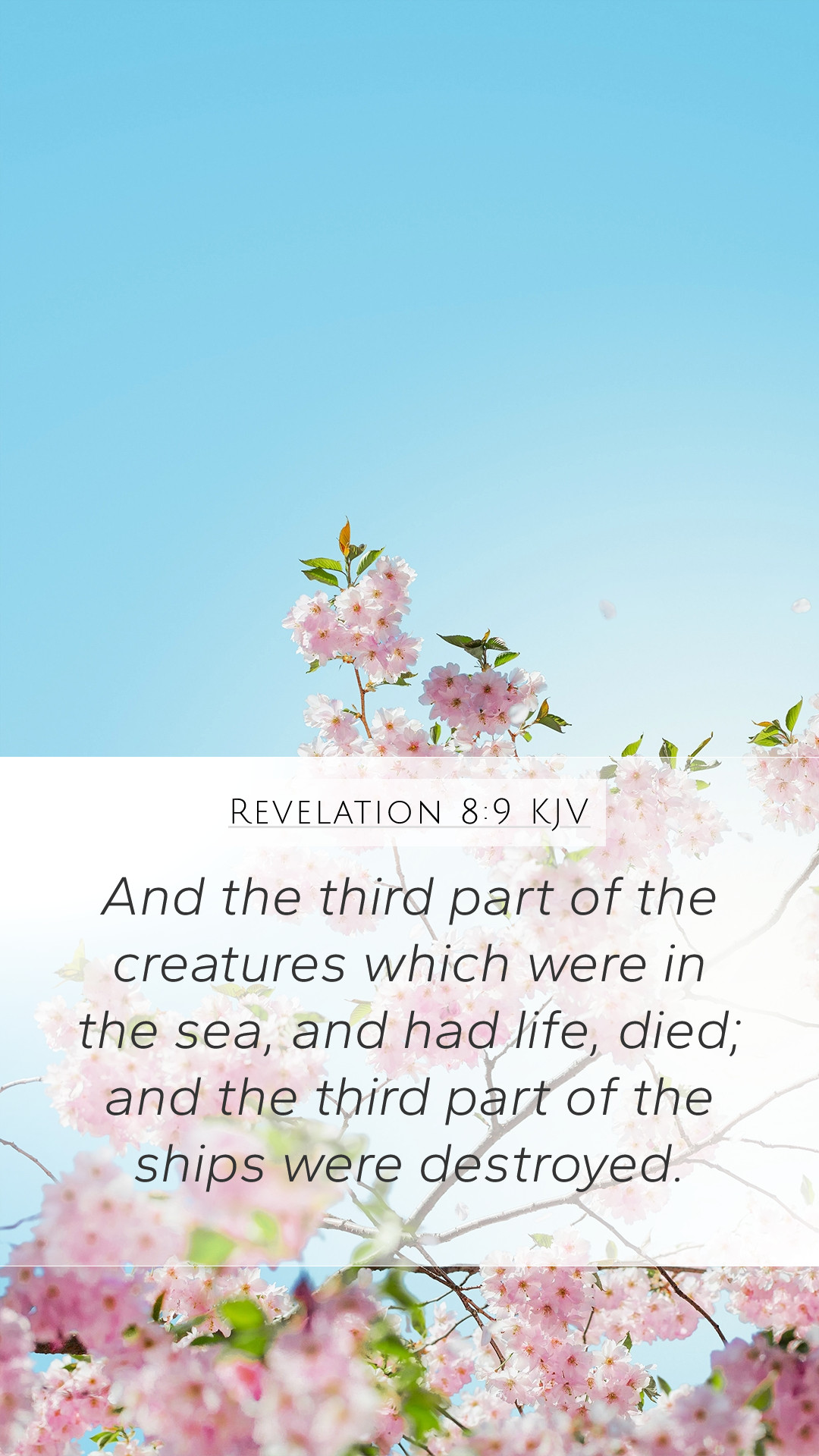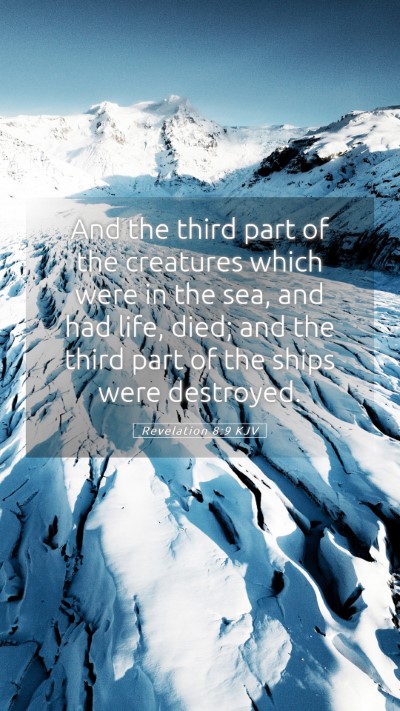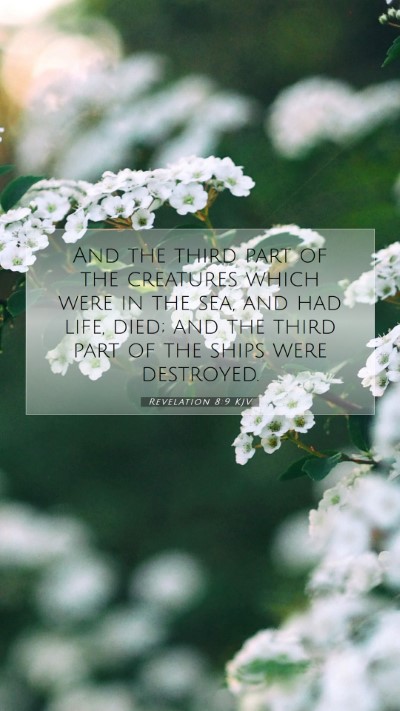Bible Verse Meaning: Revelation 8:9
Verse: "And the second angel sounded, and as it were a great mountain burning with fire was cast into the sea: and the third part of the sea became blood."
Overview: Revelation 8:9 describes one of the terrible judgments that will occur during the end times, as symbolized through the sounding of the second angel’s trumpet. This imagery is rich and layered, reflecting themes of divine judgment, the consequences of sin, and God’s sovereignty over creation.
Background Context
In the Book of Revelation, John the Apostle conveys a vision of the future that includes a series of divine judgments targeting various elements of the earth and humanity. This prophetic text employs vivid imagery to communicate deeper spiritual truths.
Interpretations and Insights
-
Matthew Henry's Commentary:
Matthew Henry emphasizes that the great mountain burning with fire symbolizes a powerful, possibly governmental or religious system that will be destroyed. The casting into the sea signifies a drastic and catastrophic loss affecting humanity, highlighting the severity of God's judgment.
-
Albert Barnes' Notes:
Barnes points out that the third part of the sea turning to blood may represent not only physical devastation but also moral and spiritual decay among nations. The sea is often a symbol for humanity, and its transformation into blood signifies death and judgment upon a significant portion of the populace.
-
Adam Clarke's Commentary:
Clarke delves into the historical context, noting that the imagery draws parallels to the plagues of Egypt, particularly the plague of blood. This recalls God’s previous judgments and serves as a warning of what awaits those who resist divine authority. Clarke further highlights the importance of repentance and the acknowledgement of God during such times of tribulation.
Key Themes
- Divine Judgment: The verse serves as a reminder of God's just judgment against sin and rebellion.
- Symbolism of Blood: The transformation of the sea into blood can symbolize death and the consequences of sin, reflecting a stark warning to all creation.
- Prophetic Fulfillment: Revelation 8:9 echoes the prophetic tradition, aligning with themes found in the Old Testament concerning God's judgment.
Application in Bible Study
This verse can prompt discussions in bible study groups about the nature of God's judgment and its implications for believers today. It challenges individuals to examine their lives, consider the state of the world, and respond accordingly in faith and repentance.
Related Cross References
- Exodus 7:20-21 - The plague of blood in Egypt.
- Matthew 24:29-30 - The judgment and signs preceding the end times.
- Revelation 16:3 - The third angel pours out his bowl, turning the seas to blood.
Conclusion
Revelation 8:9 is a powerful verse inviting bible verse interpretations and yielding profound insight into God's nature and actions. The vivid imagery of a burning mountain and the sea turning to blood not only communicates the gravity of God’s judgment but also serves as a call to repentance for humanity.


